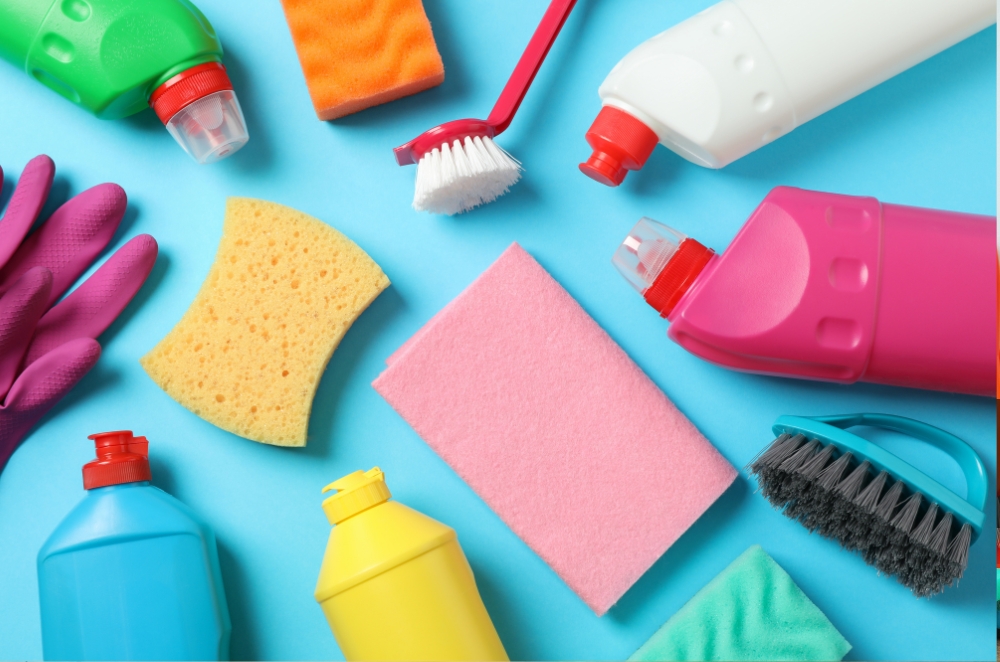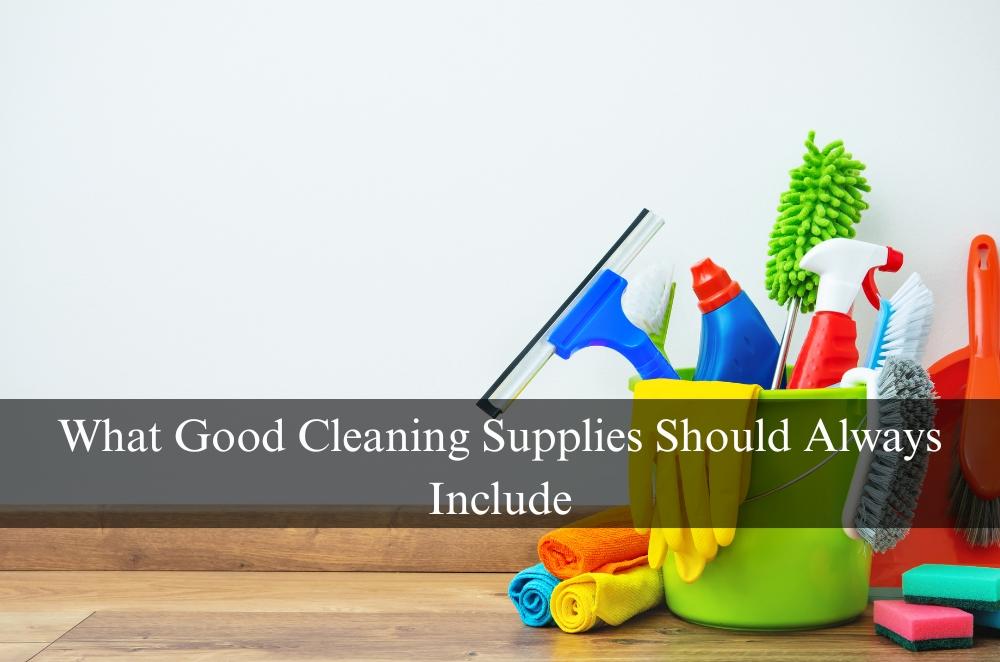If you’ve been on commercial sites long enough, you know this: bad gear slows you down, and the wrong chemicals can turn a basic job into a headache. I’ve worked plenty of contracts — retail, office, post-build — and if there’s one thing I’ve learned, it’s that cutting corners on supplies always backfires. One leaking bottle or useless mop can blow the schedule, not to mention damage the client’s space. You need good cleaning supplies — and not just whatever’s cheapest from the wholesaler.
So, what’s actually essential? What holds up under pressure? What do experienced commercial cleaners always have on hand? Let’s get into it.
Basics that don’t quit on you mid-job
There are some tools that just need to work — every day, every shift, no drama. I’ve had cloths that fell apart after one wash and mop handles that snapped mid-swipe. Now, I don’t mess around.
These are staples:
-
Microfibre cloths — the ones that last 60+ washes
-
Two-bucket mop systems for dirty/clean separation
-
Spray bottles with decent triggers that don’t clog
-
Extendable dusters (you’ll thank yourself for ceiling vents)
-
Scrub pads that don’t turn to mush after one go
One of my best buys? A set of colour-coded cloths that stack flat and don’t trap smells. Makes site rotation smoother, and you don’t end up mixing bathroom gear with kitchen stock.
Your chemicals need to pull their weight
Cleaners get judged fast — streaky glass, leftover soap film, that smell of too much bleach. If your chemicals can’t handle a dirty shopfront or a greasy kitchen floor, you’ll hear about it. Loudly.
These are my must-haves:
-
Neutral floor cleaner (safe on sealed and polished)
-
Acidic toilet/bathroom cleaner that doesn’t corrode fittings
-
Streak-free glass spray
-
Food-safe sanitiser — no strong odours
-
Heavy-duty degreaser (especially for cafes, kitchens, back rooms)
One job we had in an aged care facility had extra layers — low fragrance only, labelled storage, and logged usage. It’s why we stay across cleaning industry regulations. Rules change depending on the environment. Knowing them means you keep the contract and avoid compliance trouble.
Gear that cuts waste (and costs)
Everyone talks about being “eco” these days, but on commercial jobs, it’s really about waste. Lugging five different bottles into every building gets old fast. I started swapping in reusable systems, and it cut my refills and landfill almost in half.
Here’s what we keep on rotation:
-
Refillable bottles with concentrate mixing caps
-
Compostable bin liners (good for breakrooms and restrooms)
-
Steam mop for tiled floors — no chemical runoff
-
Durable gloves, not the ones that tear on first use
-
Reusable pads for mop heads
Some of our crews are phasing in eco-friendly cleaning tools across medical sites, too — less packaging, better shelf life, and less mess when you’re already pressed for time.
Store it like you want to use it
Ever spent 10 minutes hunting for the right spray on a cluttered trolley? Happens more than you’d think. You want supplies to be where they belong, labelled, and ready, not buried under ten packs of bin liners.
What works on active sites:
-
Buckets and cloths sorted by zone (bathroom, kitchen, general)
-
Clear labelling with usage directions
-
Trigger heads are stored upright (prevents leaks and cross-contamination)
-
Lockable tubs for chemical transit
-
Wipes sealed tight — no one likes dried-out wipes
One crew I worked with had QR codes on their caddies to track inventory across sites. Fancy? A bit. But they barely ran out of anything and kept backups where it mattered.
What separates the seasoned crews from the rest
Look at a well-oiled team and you’ll notice their gear is simple but solid. No over-complicated tech, no overflowing buckets of half-used sprays. Just essentials that do the job without fuss.
What always shows up in pro kits:
-
Durable bottles (not the cheap plastic that cracks in the van)
-
Back support belts and knee pads — long shifts mean sore bodies
-
Stain remover pens or wipes for surprise spills
-
Vacuums with HEPA filters that don’t weigh a tonne
-
Chemicals that are compatible with multiple surfaces — less to carry
For larger contracts, we buy in bulk. Not always because it’s cheaper — it just makes life easier. Picking the right wholesale cleaning supplies means fewer last-minute orders and more consistency. One less thing to worry about.
Mixing in safe DIY when it makes sense
Some clients hate chemical smells. We had one bank branch that complained every time we used our regular glass cleaner. We switched to vinegar and water for that site — it worked fine and kept them happy.
Not everything needs to come from a drum. For simple tasks, sometimes DIY does the job.
Where it fits:
-
Vinegar mix for inside windows and glass
-
Bicarb paste for sinks and ceramic
-
Lemon oil polish for furniture
-
Castile soap in fragrance-sensitive areas
Just don’t go mixing chemicals with home recipes unless you’re sure it’s safe. And always label DIY sprays like you would anything else.
Final word
When your kit’s solid, the job flows better. You don’t waste time digging through broken bottles, patching torn gloves, or scrubbing twice because a spray missed the mark. That’s what good cleaning supplies do — they make every shift smoother, safer, and less frustrating.
I’ve cleaned enough boardrooms, gyms, and greasy takeout joints to know: gear that lasts and works matters. Forget what looks fancy. Stick with what gets the job done, packs easy, and doesn’t let you down halfway through a shift.
If your supplies make your job harder, they’re the wrong ones.



